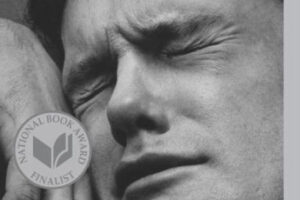Notes and questions for Part I of Said’s Orientalism can be found here.
You can register for our upcoming Book Chats at: https://linktr.ee/1882foundation
In Part II of Orientalism, Said continues with his description of the historical underpinnings of Orientalist thinking, shifting his attention to the modern foundations of Orientalism in 18th-century Europe. As Europe / the West progressed technologically, Said explains that Orientalists began viewing Asia as a place which could regenerate Europe spiritually. Orientalism in the 1800s thus introduced a new philosophical development: the Orient as a continent mattered less than the Orient’s practical use to Europe. “Europe regenerated by Asia” became a common trope which eventually justified colonial expansion.
Key Terms/Ideas
Whereas pre-18th century Orientalism had been viewed primarily through a religious lens, the increased secularization of the West meant that the Orientalist imagination began to change once again. Before, Orientalist studies had been limited to a broad divide between Judeo-Christian and non-Judeo Christian religions; as cultural, political, and social contact increased (and Europe grew increasingly secular), the religious overtones of Orientalism gave way to new forms of cultural thinking that evolved from older Christian ideas of “civilized” and “uncivilized” nations.
Four major trends in 18th-century thinking drove modern Orientalism:
Expansion: essentially, colonialism/imperialism and its aftereffects. More travel from Europe across the globe led to more encounters between Western and Non-Western individuals. Consequently, the West developed a broader vision of the “Orient” which extended beyond just the Islamic world, encompassing most non-Western countries — and cultures, not just religions — across the globe.
Historical confrontation: A perceived relationship between the histories of West and East, in which the East’s histories could explain the trajectory of Western development. For example; Orientalist scholars increasingly looked to the rise of Islam to explain the fall of the Roman empire, since they roughly coincided historically.
Sympathy: Orientalism as an artistic/aesthetic trend, based on the supposed spiritual purity (and implied moral backwardness) of the “Other,” driven by the notion that all cultures were, fundamentally, similar. This “sympathy” appeared frequently in art, music, and literature from the period, and was driven by a false sense of Western moral, cultural, and technological superiority.
Classification: As the natural sciences — particularly biology — advanced in the 18th century, scientists/scholars attempted to appropriate ideas of biological taxonomy to “classify” people based on their perceived physiological and moral differences. Consequently, entire populations of non-Westerners were reduced to shallow stereotypes as part of a supposedly “objective,” academic study.
Crucially, modern Orientalism was (and is) based heavily on a system of colonial and imperial accumulation — of ideas, objects, and cultural artifacts — which could then be reframed by Westerners. As Said notes, this reframing furthered the false notion that the Orient was a) a singular object to be studied for the betterment of Western powers and b) a “backwards” land in need of technological, if not cultural, “modernization.”
Questions
How might scholars study and/or think about places such as China, India, or Japan without falling into Orientalist thinking?
In recent years, the tourism industry in places such as Hawaii has been heavily criticized for reproducing colonialism, especially since tourists tend to develop Orientalized visions of the places they visit. How can tourists engage with the places they visit in ways that aren’t neocolonial or imperialist? And how can we separate the colonial history of travel writing from our own travels?
How can (or does) foreign language education risk recreating Orientalist lines of thinking?
Is the idea of a literary canon — Western or otherwise — inherently problematic?
In what ways does Orientalist rhetoric, study, etc. lead to the internalization of Orientalist thinking by immigrants and their descendants? And as immigrants/descendants of immigrants, in what ways are we Westerners?
Can Westerners engage with non-Western spiritual and/or cultural practices in ways that aren’t appropriative or Orientalized? If yes, how so?
Why did — and do — Westerners find the Orient “threatening” to their sense of self, and in what ways have modern Orientalists attempted to “domesticate” the Orient? (fetishization, emasculation, etc.)

